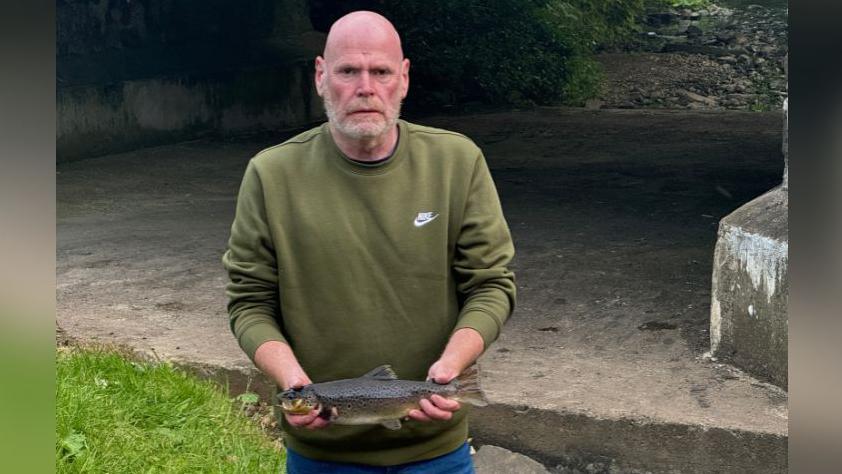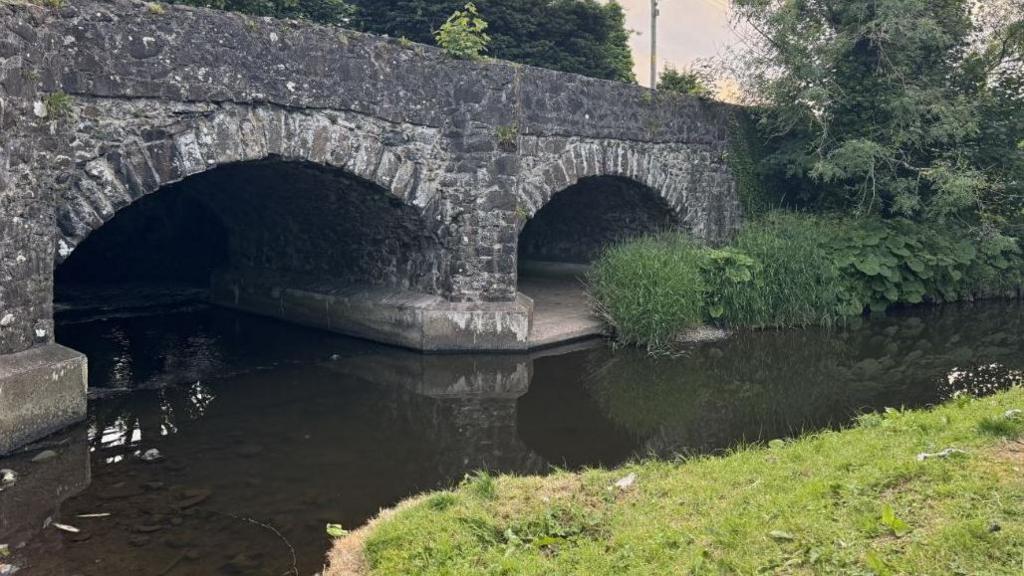Glenavy River fish kill 'harrowing'
Anthony McCormack says the fish were upside down, struggling to breathe
- Published
Anglers are concerned that hundreds of fish could have been killed by pollution in the Glenavy River, County Antrim.
The Northern Ireland Environment Agency (NIEA) received a report on Wednesday that several miles of the river - part of the Lough Neagh catchment - was polluted and that there were fish in distress and struggling to breathe.
About 30 dead fish have been identified, but there are concerns that the number could reach 200 or 300 at that particular stretch of river.
Speaking to BBC NI's Good Morning Ulster programme, Anthony McCormack from the Glenavy Conservation and Angling Club, said: "From here to Lough Neagh, depending on the severity of the pollution on down, it could be over 1,000 fish."
'The water is just brown'

Anthony McCormack believes pollution from agriculture is most likely responsible for the fish kill
Mr McCormack suggested that pollution from agriculture is most likely responsible for the fish kill.
The Glenavy River has suffered similar pollution incidents in the past, once in 2020 and in 2014.
Describing the scene at the Glenavy River, Mr McCormack said: "The water is just filled with a brown effluent.
"Normally, this river is sparkling clear and you can see right down to the bottom."
The Glenavy Conservation and Angling Club accessed grants to open a parkway, a fairy glen for children and fishing stands along the riverbank, making it a popular recreational area.
Young people from the nearby Glenavy Youth Project were confronted by the sight of the dead fish floating at the surface of the river.
"It's just really harrowing that kids in particular had to witness this incident," Mr McCormack added.
A spokesman from the Northern Ireland Environment Agency said: "Officers remain on site assessing the extent of the incident and conducting an investigation to determine the possible source of the pollution.”

The dead fish were found on Wednesday evening on a stretch of the Glenavy River